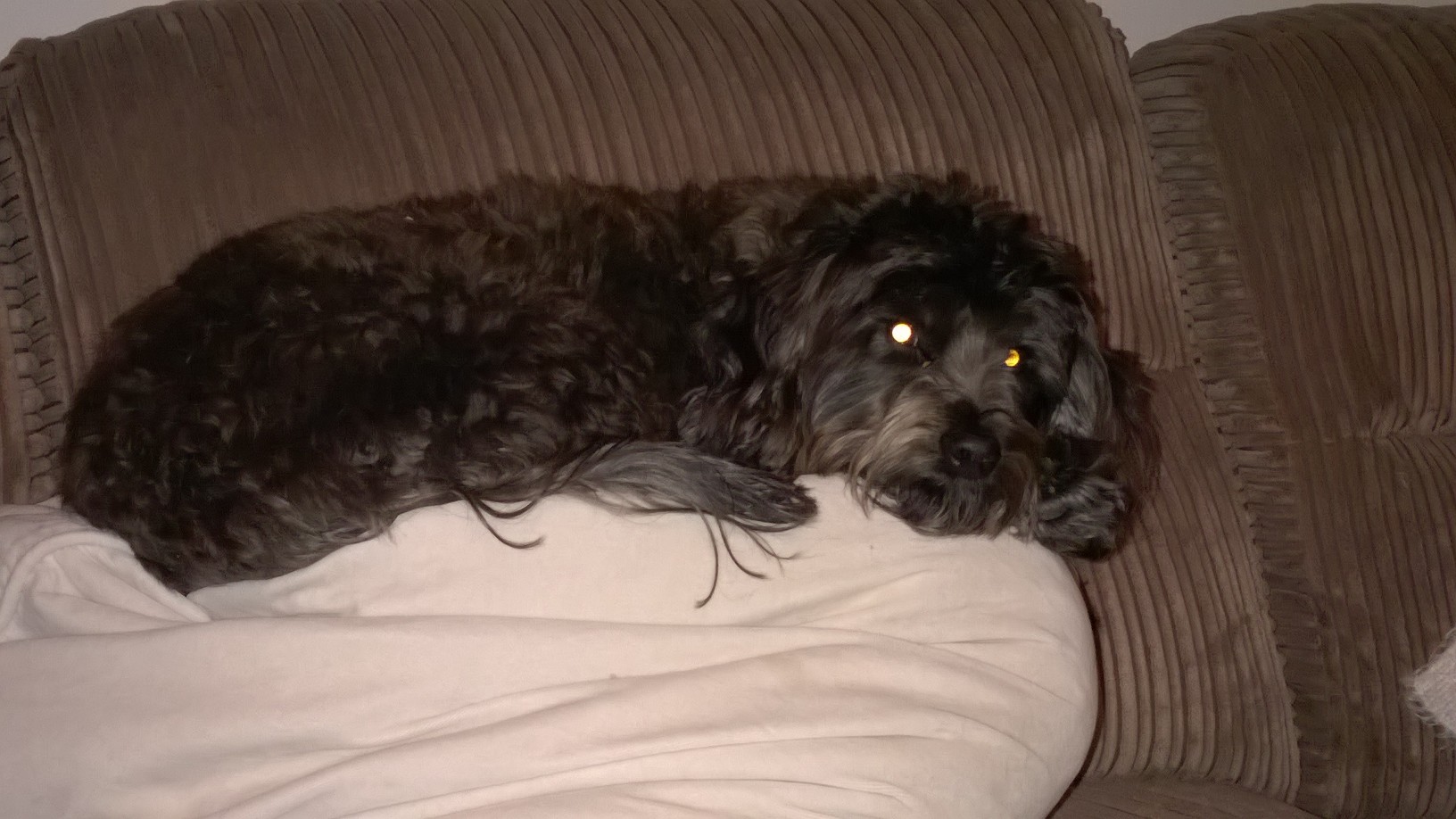Barks Blog
Humans Have Feelings Too

Most extreme behavior issues will take considerable time and work to resolve.
The case of two of little dogs I went to a few weeks ago, was very unusual in that the dramatic change was virtually instant.
It was all about the humans and not about the dogs at all. Seldom have I been to dogs that so extremely reflected the state of mind of one particular person as these two did.
People like myself are called out to help with the dogs’ behavior but we also are well aware that the emotions and behavior of the humans strongly influence the behavior and emotions of their dogs. This case brought so strongly home to me the awareness, sympathy and empathy that is needed for how the human part of the equation may be feeling.
These little dogs did fantastically well, but the young lady owner (age 22 and who I shall call Clare) did not do well at all initially. Breaking this connection with her dogs felt to her like a bereavement and she, too, needed help. Along with over-attachment to their previous dog, she had ‘lived for and through’ her dogs since she was about eleven years old.
Here is the ‘story’:
Poppy is a ‘Yorkiepoo’, acquired three years ago as a tiny under-age pitiful little puppy for sale in a shop. One can only guess that she came from a puppy mill somewhere, very possibly shipped over from Eastern Europe to the UK as so many are. Not a good start in life.
Ollie is a miniature Schnauzer, chosen to keep Poppy company and to give her a bit more confidence which hasn’t really worked.
The most concerning thing is how inseparable the two little dogs are from Clare, Poppy in particular. They won’t let her out of their sight. If Clare moves, Poppy moves. All the time I was there Poppy sat beside or in front of her, scared but protective. Even when Clare isn’t touching the little dog, she surrounds her with a sort of invisible cloak of concern.
Clare herself is equally needy of the dogs as she worries and watches over them constantly (as do the whole family to a lesser extent). She hates going out to work, conjuring up all sorts of scenarios of the dogs coming to harm when she is out.
When I arrived it took Poppy quite a while to stop barking at me, demonstrably making sure I kept away from the young lady. When Clare goes out, she cries at the door, even when other people are in the house. She then transfers her ‘following’ onto the mother who is also anxious. Other manifestations of the problem include Poppy not eating well, constantly toileting around the house and problems with both dogs around the toddler grandchild.
Predictably when out on walks with Clare, Poppy is very scared of people and other dogs, and when off leash she may run away and hide. Both she and Ollie bark constantly at anything they see. Ollie is a much more stable character in general, but even he is affected by Poppy’s panicking and the general anxiety.
They have felt unable to go out as a family in the evening for two years now.
We discussed ways of dissolving the invisible umbilical attaching Poppy to Clare. We looked at ways of enriching the dogs’ lives and encouraging independence. We put in place little changes in many aspects of the dogs’ lives. A bit like a jigsaw puzzle, if all the bits are slotted into place then you start to get the whole picture looking different.
The humans’ tone of voice and body language can make a huge difference – hellos and goodbyes can be matter-of-fact. This case highlighted just how important what the humans are feeling inside also is.
The next day after my visit before I even had time to send my report and plan, I received this email: ‘We made all of the changes that we could remember and the transformation with Poppy has been absolutely astounding. It is literally as though someone has pressed a switch. I can’t explain it any better than that. She is like a different, chilled out little dog. Would you believe that neither Poppy or Ollie followed Clare when she came home from work today? They stayed in the living room, sprawled out and (hopefully) carefree. They both ate all of their dinner. The baby was here today (the dogs’ behaviour around the toddler grandchild caused massive anxiety) but they did not seem as interested in him as they usually would be’.
I did give the family one word of warning. A familiar pattern I see is dramatic improvement immediately, followed by a downturn as the dogs start to adjust and test the new boundaries, maybe even becoming frustrated. If this does happen, the people can now see what they are aiming for if they work through this and remain consistent.
However, a week later I received this: ‘Things have improved SO much that you would be amazed! Clare is on board now… WooO! We had a nice chat and I told her what you said about this being very difficult for her. My giving her some slack and some understanding helped massively. We have not had any pees in the house since Sunday, so fingers crossed…!Another major development is that Poppy will now venture right across the garden, as opposed to staying close to the edges. She has gained so much more confidence than I thought possible at this stage. Walks have been calm and lovely with Poppy happy to wander a little bit, just turning to look at us every now and then. They are hardly barking at noises now and are quiet when people come in. There has been another development which was unexpected…. They both eat all of their food now.’
And all this achieved by gently dissolving that invisible umbilical of unhealthy attachment between human and dog!

